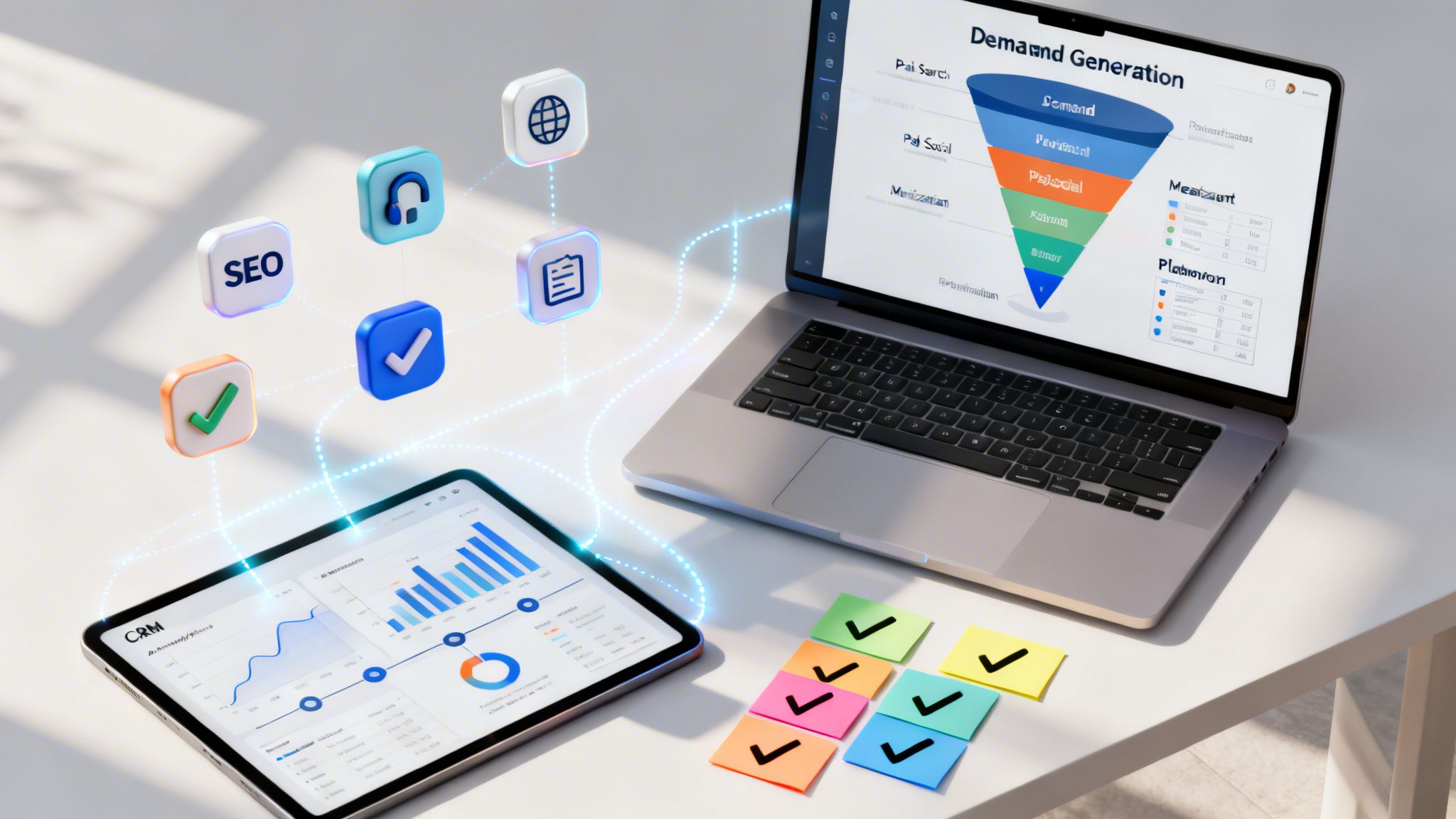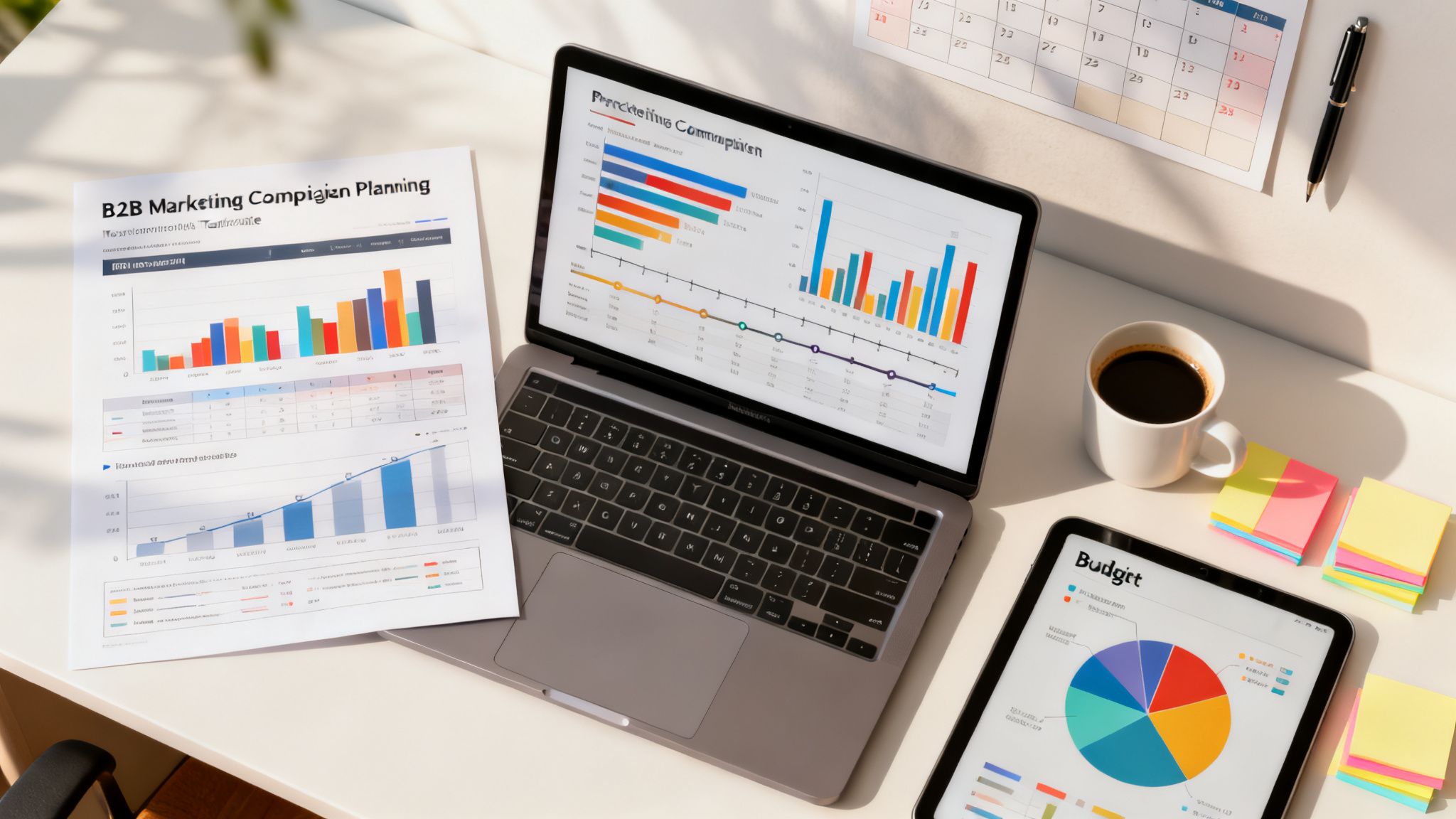It’s no surprise that technology has revolutionized how businesses operate and communicate in the 21st century. From customer relationship management (CRM) to enterprise resource planning (ERP), these systems have become vital tools for companies to streamline their processes and build lasting customer relationships. But what is the difference between CRM and ERP?
In this article, we'll explore how CRM and ERP systems work, their benefits, and their drawbacks so you can decide which is right for your business. So, let's get started by examining what CRM and ERP are all about!
What is CRM?
CRM stands for customer relationship management and is software designed to help businesses improve customer communication. CRM aims to provide a single platform that allows sales reps, customer service representatives, and marketing teams to access customer interactions, sales funnel information, and marketing campaigns to improve customer experience.
CRM systems are typically cloud-based, allowing real-time updates from any device. With this data at your fingertips, you can quickly identify potential customers and create personalized strategies for engaging them. Additionally, by understanding customer preferences and behavior patterns through the analytics provided by CRM systems, companies can make more informed decisions about how best to market their products and services to prospective customers.
RELATED: What is Salesforce & What is it Used For?
What is ERP?
ERP stands for enterprise resource planning and is a software solution that helps businesses streamline their processes. It combines the data generated by different departments of an organization into one comprehensive system, allowing users to access information quickly and easily. With ERP, companies can reduce costs, increase efficiency, and make better decisions based on real-time data. ERP can manage supply chain operations, inventory management, sales force automation, customer service and communications, financial management, human resources planning, and more.
ERP provides a single source for all business processes within an organization – from forecasting to order processing – giving users greater visibility into every aspect of their business operations. This allows businesses to maximize their profits while ensuring customer satisfaction through the timely delivery of products and services.
What’s the Difference Between CRM and ERP?
CRM and ERP are two of the most important software solutions for businesses today. While both systems provide valuable tools to help businesses run more efficiently, they have distinct differences. CRM stands for Customer Relationship Management and is a system that focuses on building relationships with customers by providing personalized customer service. It allows companies to track customer interactions, manage sales processes, create marketing campaigns, and build customer loyalty.
ERP stands for Enterprise Resource Planning. It is a software solution that helps businesses manage their supply chain operations, inventory management, sales force automation, financial management, human resources planning, and more. ERP provides a single platform to manage all business processes within an organization – from forecasting to order processing – giving users greater visibility into every aspect of their business operations. CRM allows businesses to build strong relationships with potential customers, while ERP enables them to identify new business opportunities and maximize profits. Both solutions offer invaluable benefits for businesses looking to improve customer experience and optimize operations.
RELATED: Salesforce Marketing Cloud: Features & Pricing
Benefits of CRM
Customer Relationship Management (CRM) software provides businesses various benefits, allowing them to understand their customers better and build stronger relationships. By providing a comprehensive view of customer data, businesses can identify customer needs and develop tailored strategies that meet those needs.
Additionally, they can track customer interactions and provide personalized service. CRM systems enable companies to create targeted marketing campaigns and develop more efficient sales funnels. Furthermore, businesses can gain insights into prospective customers and their buying behavior by accessing detailed customer information. Finally, CRM solutions help streamline customer communications, enabling companies to respond quickly and accurately to inquiries. All in all, using CRM technology can greatly improve customer satisfaction while boosting sales and profits.
Improved Customer Relationships
Customer relationships are the foundation of any successful business, and fostering strong connections between a company and its customers is essential. With Customer Relationship Management (CRM) software, businesses can improve customer relationships in several ways. By providing comprehensive customer data, companies can better understand customer needs and develop tailored strategies that meet those needs. Additionally, they can track customer interactions and provide personalized service.
CRM systems enable companies to create targeted marketing campaigns and develop more efficient sales funnels. Furthermore, businesses can gain insights into prospective customers and their buying behavior by accessing detailed customer information. Finally, CRM solutions help streamline customer communications, enabling companies to respond quickly and accurately to inquiries. All in all, using CRM technology can greatly improve customer satisfaction while boosting sales and profits.
RELATED: 10 CRM Implementation Steps for Company Success
Streamlined Sales Processes
The sales process is an integral part of any business, and streamlining it can lead to increased efficiency and profitability. ERP software solutions are a great way to achieve this goal. ERP systems provide a single platform for managing all aspects of the sales process, such as tracking potential customers, automating sales force tasks, and managing inventory. By consolidating all data into one system, businesses can streamline processes and eliminate costly manual labor.
Additionally, ERP systems can provide valuable insights into customer behavior and help create more effective marketing campaigns. Furthermore, they enable businesses to improve customer service by providing detailed information about customers in real time. Finally, ERP solutions allow companies to identify new opportunities for growth by analyzing current business models and identifying potential areas for improvement. Overall, using ERP technology can significantly reduce costs while increasing efficiency and profitability in the long run.
Automation of Customer Interactions
Automation of customer interactions is an essential part of any successful business. Gone are the days of manually responding to customer inquiries and requests, as automation has replaced many labor-intensive processes. For example, automated chatbots can answer common questions quickly and efficiently without requiring customers to wait on hold or talk to a live agent. Additionally, automated emails can be sent out with personalized messages based on customer behavior or preferences, providing a more tailored experience for each customer.
Automated systems also allow companies to capture vital data about customers and their interactions that can be used for future marketing initiatives. Finally, automation allows businesses to scale their operations quickly by eliminating manual labor and reducing the need for additional staff. By leveraging automation, businesses can provide an efficient and personalized customer experience while freeing up resources for other areas of the company.
RELATED: Failures of CRM Implementation: 5 Common Challenges
Accurate Forecasting and Analysis
Accurate forecasting and analysis are important components of success for any business. With the right data, businesses can make informed decisions about future investments, operations, and strategies. Accurately forecasting customer demand, potential market trends, and operational costs is essential to ensure a successful future.
By collecting and analyzing data from past performance and current trends, businesses can gain valuable insights into how they should move forward. This allows them to create more accurate models better suited to their needs. Additionally, companies can use forecasting and analysis to identify areas of improvement or growth opportunities to stay ahead of their competition. Accurate forecasting and analysis will help businesses make the most of their resources and confidently plan for the future.
Benefits of ERP
Enterprise resource planning (ERP) is an invaluable tool for businesses of all sizes. It offers a single platform that integrates multiple business processes, including customer relationship management, supply chain management, inventory management, sales force automation, financial management, etc. With ERP systems in place, businesses can reap the benefits of improved efficiency and productivity. This leads to cost savings as well as improved customer service.
Additionally, ERP helps businesses automate their operations by streamlining tedious tasks such as creating invoices and tracking shipments. By automating certain processes, businesses can dedicate more resources to other areas, such as marketing campaigns or customer interactions, without increasing overhead costs. Lastly, having a single data source across all departments allows for more accurate reporting and analysis, which helps companies make better decisions about potential customers or business opportunities quickly and effectively. Ultimately, ERP offers many advantages that help companies stay competitive in today's market.
RELATED: What are CRM Systems? Business Guide
Automates Business Processes
Automating business processes can be a powerful way to streamline operations and increase efficiency. Automation helps reduce manual labor and increases accuracy by eliminating human error. It also frees up valuable resources that can be used for more critical tasks. Businesses can use automation to simplify complex processes such as customer onboarding, order processing, data entry, and report generation.
Automation also helps ensure compliance with industry standards, such as GDPR and HIPAA, as it eliminates the need for manual input of sensitive data, which reduces the risk of data breaches. Additionally, automating business processes makes it easier for businesses to track performance and set goals. By gathering real-time data on process performance, companies can quickly identify areas of improvement or inefficiency and make changes accordingly. Ultimately, automating business processes offers numerous benefits that allow businesses to stay competitive.
Enhances Supply Chain Performance
Supply chain management is an essential part of running a successful business. It involves optimizing processes and systems, such as inventory management and logistics, to ensure the efficient and cost-effective delivery of goods or services to customers. By improving supply chain performance, businesses can reduce costs, increase operational efficiency and gain better visibility into operations.
With the right technology solutions, businesses can automate processes and streamline workflow while gaining insights into customer needs. For example, automated tracking systems provide real-time updates on orders so that companies can keep track of shipments and anticipate delays quickly. Software solutions for inventory management allow companies to forecast demand accurately and manage their stock levels accordingly. By enhancing their supply chain performance with these software solutions, businesses can improve customer satisfaction and maximize returns from each transaction.
RELATED: 5 Benefits of Using a CRM for Your Business
Improves Inventory Management
Inventory management is a crucial part of running a successful business. It involves tracking and managing the levels of goods or services to ensure that customers can be served promptly and efficiently. By improving inventory management, businesses can reduce costs, increase operational efficiency and gain better visibility into operations.
With the right technology solutions, businesses can automate processes and streamline workflow while gaining insights into customer needs. For example, automated tracking systems provide real-time updates on stock levels so that companies can anticipate demand accurately and keep track of their inventory quickly. Software solutions for inventory forecasting allow companies to plan for customer demand to ensure they always have enough stock available. By improving their inventory management with these software solutions, businesses can maximize returns from each transaction while ensuring customer satisfaction and loyalty.
Provides Financial Management Tools to Create a Single Source for Data Storage
Financial management is an essential part of running any business. It involves tracking and managing financial information such as revenue, expenses, profits, losses, investments, and taxes to ensure that all financial activities comply with the law and regulations. By providing financial management tools, businesses can gain better financial visibility and make more informed decisions that optimize their profits. With the right technology solutions, businesses can store data in a single source for quick access and analysis.
Software solutions for accounting provide businesses with accurate records of cash flow, bank accounts, and other financial transactions so they can keep track of their finances quickly and easily. Solutions for budgeting allow companies to create detailed spending plans based on current market conditions and predict future trends. With these software solutions, businesses can manage their finances efficiently while gaining insights into customer needs.
RELATED: 5 Best CRM for Startups
Disadvantages of CRM & ERP Systems
CRM and ERP systems are powerful tools for businesses looking to streamline their operations. However, some potential drawbacks should be considered before investing in these solutions. For starters, implementing a CRM or ERP system can require high upfront costs, including purchasing the software and hardware and training staff on how to use it.
Additionally, these systems can be complex and require regular maintenance to ensure that they’re running smoothly. Finally, some organizations may find it difficult to transition from manual processes to automated ones with an ERP or CRM system. As a result, businesses should carefully consider the pros and cons of each solution before implementation to ensure that the system is right for them.
Conclusion
In conclusion, CRM and ERP systems are robust solutions for businesses looking to streamline their operations. However, organizations must consider the potential drawbacks and decide if these solutions are worth the upfront costs associated with implementation.
Ultimately, organizations should weigh each solution's pros and cons before investing in them to ensure that they make the right decision for their business model. With a well-thought-out plan, businesses can leverage CRM and ERP systems to maximize efficiency and increase customer satisfaction.

.avif)



